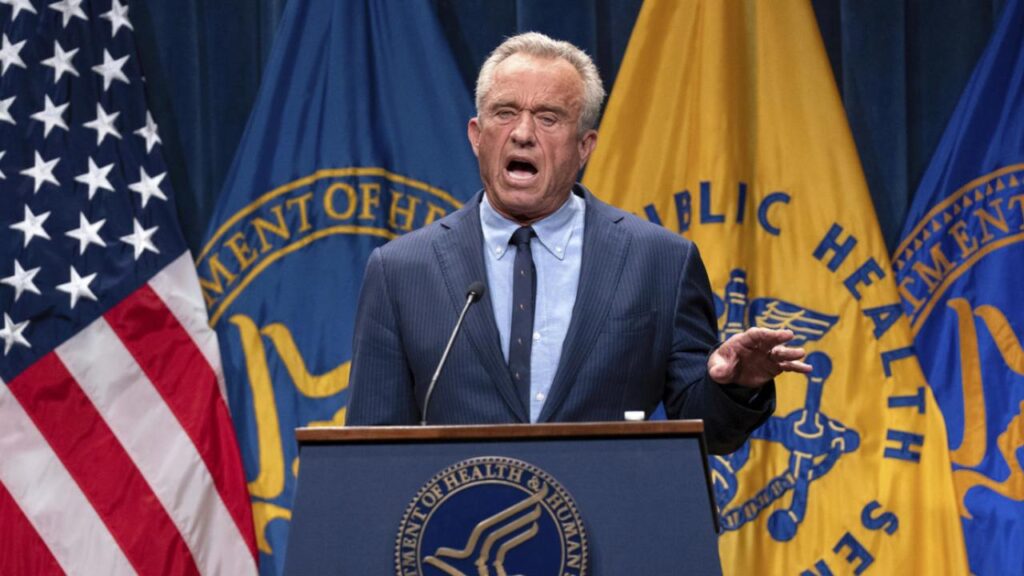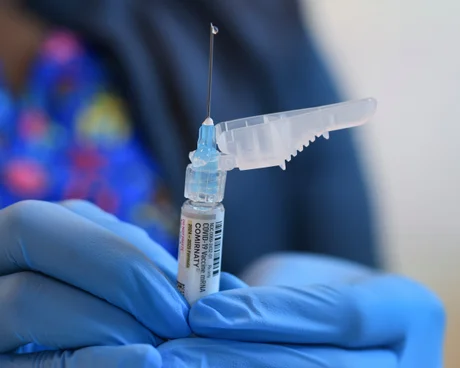In recent months, the debate over vaccine safety and effectiveness has become even more contentious, thanks to the increasing influence of Robert F. Kennedy Jr. (RFK Jr.). As a well-known figure in the world of vaccine skepticism, RFK Jr.’s radical views on vaccines have clashed with the newly established Centers for Disease Control and Prevention (CDC) Vaccine Advisory Panel.

The New CDC Vaccine Panel vs. RFK Jr.
| Takeaway | Stat |
|---|---|
| RFK Jr.’s influence on vaccine policy | 61% of Americans have heard of RFK Jr.’s anti-vaccine views |
| New CDC Vaccine Advisory Panel | The CDC’s vaccine panel is designed to strengthen immunization strategies in light of emerging health challenges. |
| The divide in public trust | 42% of U.S. adults express concerns about vaccine safety, fueled by misinformation. |
The CDC Vaccine Advisory Panel’s New Mission
In late 2024, the CDC took steps to bolster its vaccine policies by creating a new Vaccine Advisory Panel (VAP). This group, composed of top public health experts and clinicians, aims to address the growing challenges posed by new vaccine-preventable diseases and to combat misinformation around vaccine safety. With the panel’s formation, the CDC is sending a clear message: they are committed to making science-based decisions that protect public health. The new panel’s role is particularly crucial as vaccine hesitancy remains a significant issue across the United States, influenced by misinformation spread on social media and other channels.
This decision comes after years of public health battles over vaccines, most notably during the COVID-19 pandemic. The CDC’s leadership and their commitment to evidence-based guidelines are essential to reassure the public and maintain trust in vaccinations.
However, RFK Jr.’s views on vaccines—long regarded as fringe—have gained considerable traction in recent years. His claims that vaccines are dangerous and contribute to a variety of health issues have resonated with a segment of the population, often fueled by social media and alternative news sources. This has created a divide that pits his radical views against the CDC’s scientific consensus.
RFK Jr.’s Radical Vaccine Views: Stirring the Pot
RFK Jr. has become one of the most vocal critics of vaccines in the U.S. His anti-vaccine advocacy is rooted in a belief that vaccines are responsible for numerous health problems, ranging from autism to autoimmune disorders. Despite a complete lack of scientific evidence supporting these claims, RFK Jr.’s messaging has gained popularity, particularly within certain political and media circles.
What sets RFK Jr. apart from other vaccine critics is his legacy as a member of the Kennedy family, which has often been associated with social justice and environmental activism. His position lends credibility to his claims, allowing him to sway those who might typically trust authoritative sources. This has made it harder for mainstream health officials to debunk his assertions without facing public backlash.
While RFK Jr.’s rhetoric may seem extreme to many health experts, it has nonetheless influenced public opinion. According to recent surveys, approximately 1 in 3 Americans believes that vaccines can cause more harm than good, a sentiment that has been driven in part by figures like RFK Jr.
The Growing Divide Between Science and Misinformation
The rise of vaccine misinformation has created a dangerous wedge between science and public perception. In response, the CDC’s new panel is actively working to bridge this gap by providing accurate, timely information and debunking myths that have been perpetuated by anti-vaccine activists like RFK Jr. However, this task has become increasingly difficult, as vaccine skepticism has taken on a political dimension.
One of the most frustrating aspects of the anti-vaccine movement is its ability to infiltrate well-meaning communities, often convincing parents that vaccines are not only unnecessary but dangerous. RFK Jr.’s claims about vaccines being linked to autism have been thoroughly debunked by scientific studies, but the narrative still persists. This is in part due to the emotional appeal of his messaging, which focuses on the fear of potential harm to children.
In contrast, the CDC’s Vaccine Advisory Panel works from a foundation of rigorous scientific data and peer-reviewed research. Vaccines are among the most well-tested medical interventions, with decades of research showing their safety and efficacy. The panel’s role is to present clear, evidence-based guidance, making their work crucial in protecting public health, especially in the face of ongoing misinformation.

The Political and Public Health Implications of RFK Jr.’s Influence
The battle between RFK Jr. and the CDC’s Vaccine Advisory Panel is not just about science; it’s also about politics. Vaccine hesitancy has become a partisan issue, with those on the far right and left often united in their skepticism toward public health authorities. RFK Jr.’s rise to prominence as a political figure has turned him into a symbol for those who oppose the mainstream medical establishment.
This politicization of vaccines presents a significant challenge for health authorities. The CDC, by design, is supposed to remain apolitical, focusing solely on public health. However, in today’s polarized environment, the CDC’s recommendations are often met with skepticism or outright hostility, particularly from those who follow anti-vaccine leaders like RFK Jr.
Moreover, RFK Jr.’s influence is not limited to individual vaccine debates. His advocacy has the potential to shape health policies at the state and local levels, as governors and legislators are pressured by vocal anti-vaccine groups to roll back vaccination mandates. This has already been seen in several states where laws mandating childhood vaccinations have been weakened or repealed.
Can the CDC Overcome RFK Jr.’s Narrative?
As the CDC continues to refine its vaccine recommendations, the challenge of combating RFK Jr.’s radical views remains a significant hurdle. Public health experts agree that combating misinformation requires not only presenting scientific facts but also building trust within communities. While the CDC has worked to establish relationships with various community leaders, overcoming the deeply ingrained fear and mistrust around vaccines will require a multi-faceted approach.
Furthermore, the CDC’s ability to counter anti-vaccine rhetoric depends on its transparency and communication efforts. As seen with the COVID-19 vaccine rollout, public health agencies that fail to communicate effectively can inadvertently fuel skepticism. The key to restoring trust lies in clear, consistent messaging, as well as in demonstrating a commitment to listening to the concerns of vaccine-hesitant individuals.
The Road Ahead: Health Policy in Flux
As the U.S. navigates the turbulent waters of vaccine policy in 2025 and beyond, the tension between RFK Jr.’s radical views and the CDC’s science-based approach will undoubtedly continue. With the CDC’s new Vaccine Advisory Panel at the helm, there is hope that public trust in vaccines will be restored, especially among the most vulnerable populations.
However, the influence of figures like RFK Jr. cannot be ignored. Their ability to sway public opinion, particularly in a climate of political polarization, presents a significant challenge to health officials. Whether the CDC can hold its ground and safeguard public health against misinformation will likely shape the future of vaccine policy in the U.S. for years to come.
FAQs
How has RFK Jr. influenced vaccine policy in the U.S.?
RFK Jr.’s anti-vaccine views have gained traction, causing a shift in public opinion and contributing to vaccine hesitancy. His claims, despite being debunked, have convinced a significant portion of the population to question the safety of vaccines.
What is the role of the CDC Vaccine Advisory Panel?
The CDC Vaccine Advisory Panel was formed to provide expert guidance on vaccine safety and effectiveness, aiming to address the growing concerns around vaccine hesitancy and ensure public trust in vaccination efforts.
Why is vaccine misinformation a problem in America?
Vaccine misinformation has become a serious issue, particularly because of its emotional appeal and political undertones. It spreads rapidly through social media and alternative news sources, making it harder to counteract despite scientific evidence supporting vaccine safety.






